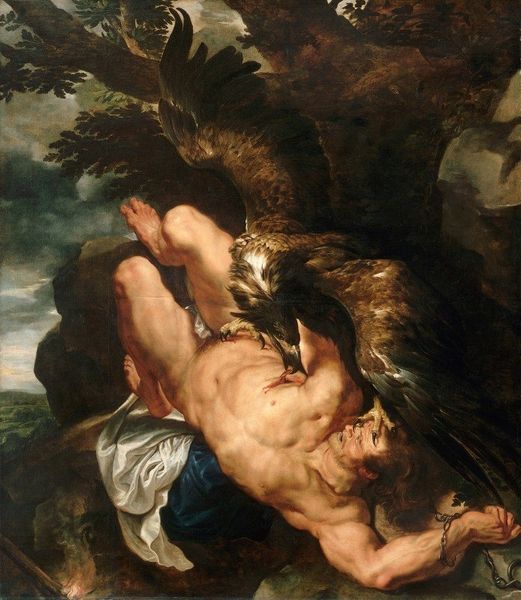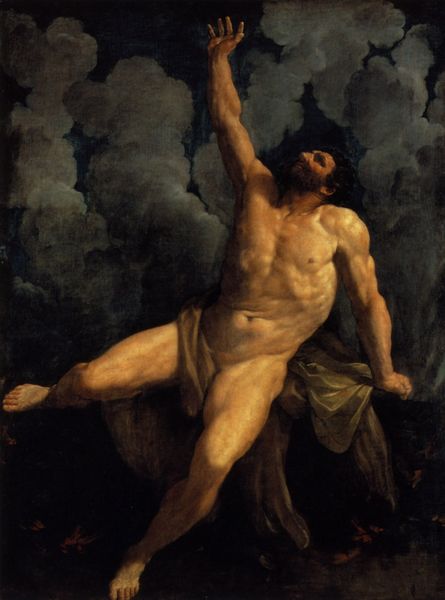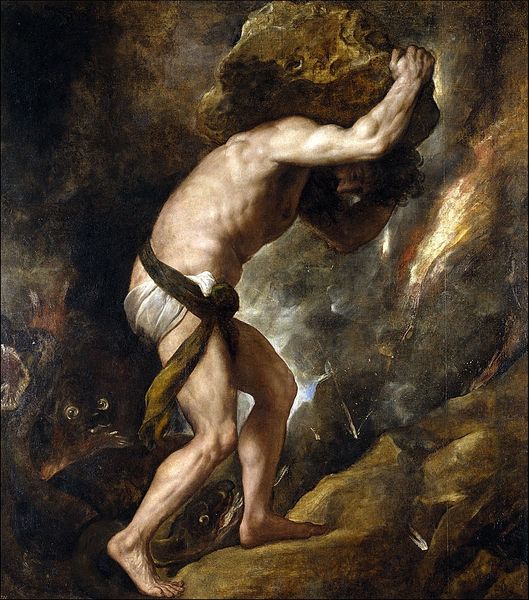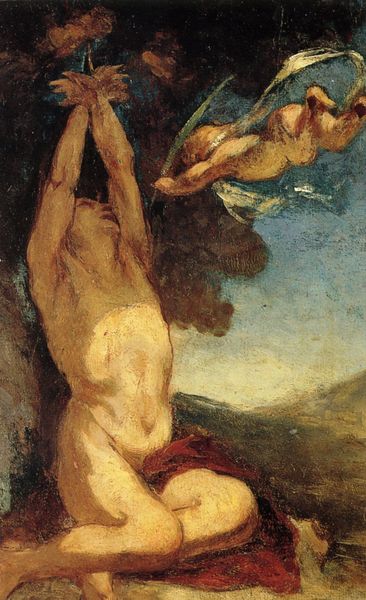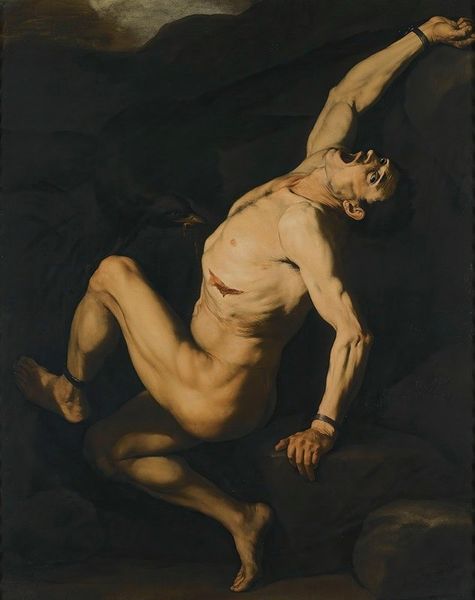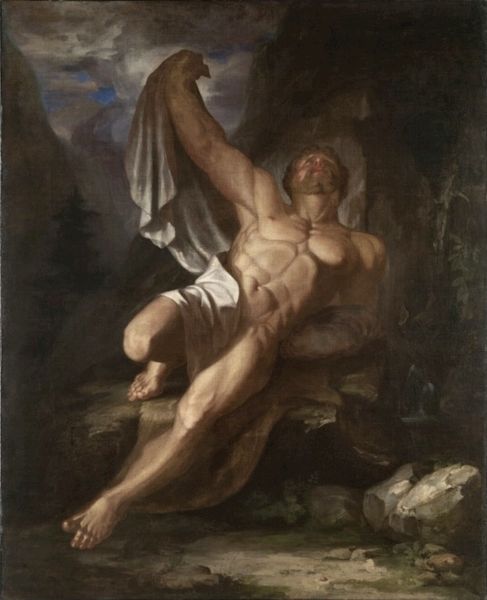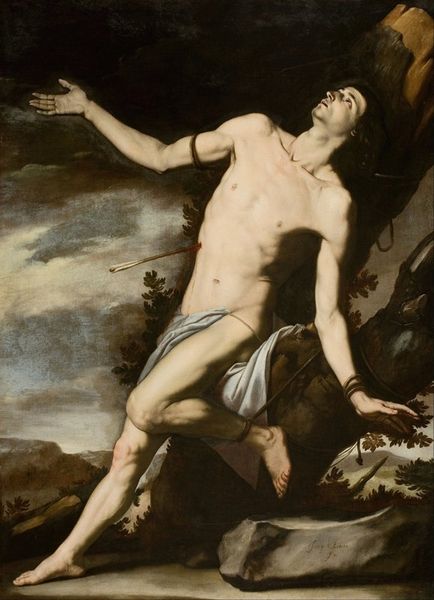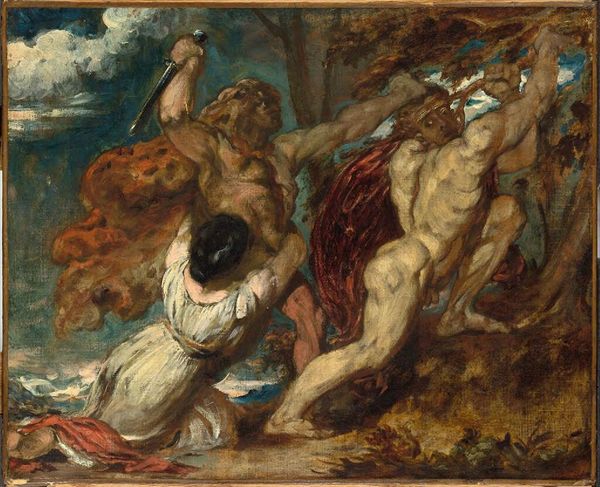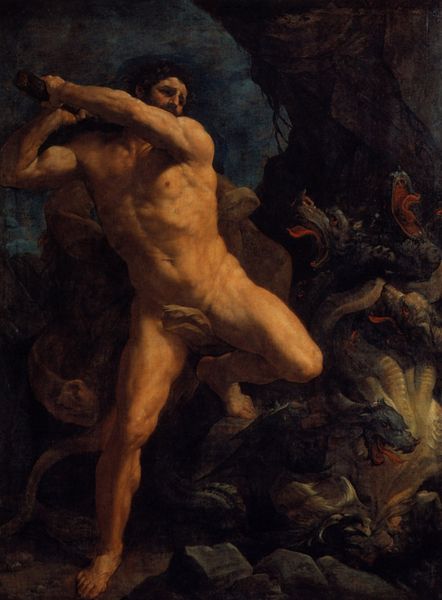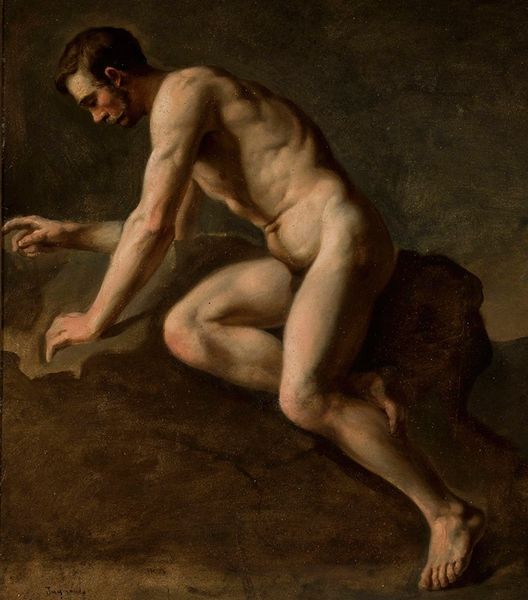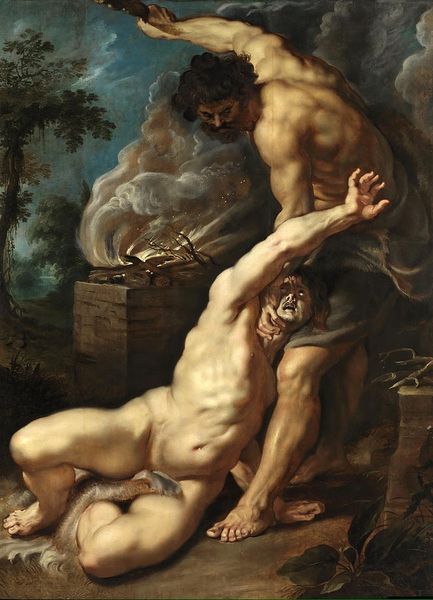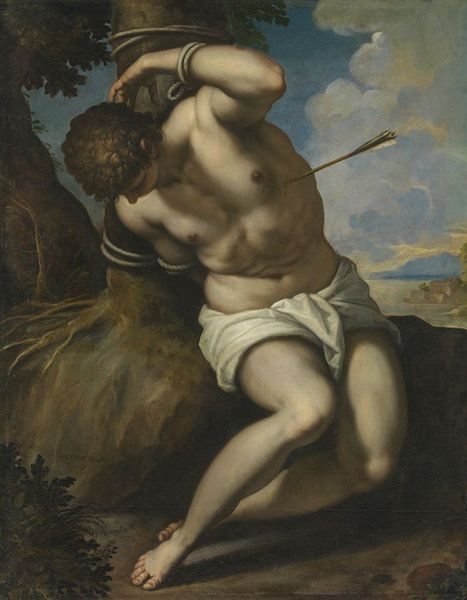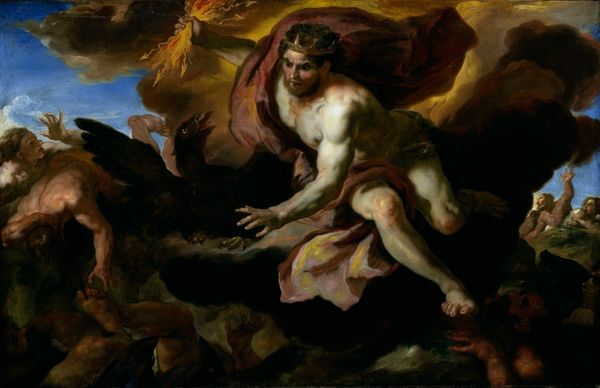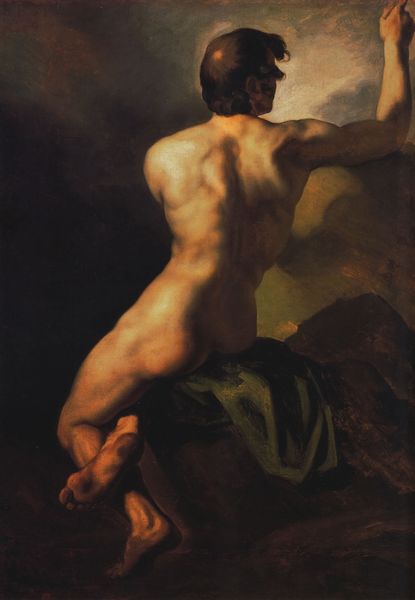
oil-paint
#
allegory
#
oil-paint
#
figuration
#
oil painting
#
romanticism
#
mythology
#
history-painting
#
academic-art
#
nude
Copyright: Public Domain: Artvee
Editor: This is William Etty's "Manlius Hurled From The Rock," painted in 1818 using oil paint. The figure's dramatic fall and vulnerable pose, contrasted against the looming cliff, evoke a sense of tragic fate. What do you make of its historical context? Curator: It's fascinating to consider this within the socio-political landscape of 19th-century Europe. The rise of nationalism and interest in classical history are critical here. Etty portrays a scene of Roman justice, but through whose eyes? Is he celebrating Roman values, or questioning the brutality of power, especially during a time of revolution and empire-building? The painting was made 3 years after the end of the Napoleonic wars and during the Bourbon Restoration, so it can be read in different ways, especially related to justice and governance. Editor: That makes me wonder about the potential political undertones. The figure seems both powerful and helpless. Curator: Exactly! How do museums and galleries shape our understanding of historical narratives? The very act of exhibiting a scene like this makes us think of the power of images, their creation, and their reception. To me, there’s an ambivalence, and perhaps that's precisely the point of historical paintings – to pose complex moral questions rather than deliver easy answers. Do you agree? Editor: I hadn't considered that, but it’s a helpful way to approach it, with the goal to question our ideas, more than telling a story. Thanks! Curator: Yes, images serve specific social functions depending on the values of specific viewers. It encourages us to be responsible when observing.
Comments
No comments
Be the first to comment and join the conversation on the ultimate creative platform.
